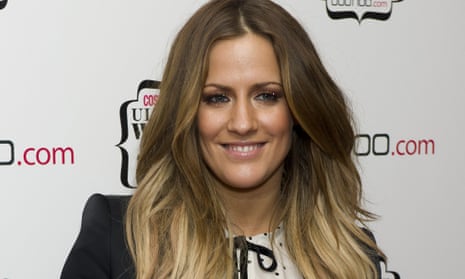The death of the Love Island presenter Caroline Flack has prompted questions about the way the justice system deals with allegations of domestic abuse and the strains imposed on defendants.
Experienced criminal barristers said delays to trials might be adding to stress and called for more to be done to support those facing trial.
Max Hardy, of 9 Bedford Row chambers in London, tweeted: “The period between arrest and charge is fraught for anyone caught up in the criminal justice system, the period between first appearance and trial even more so. In a civilised and functioning society that period should be as short as possible, in ours it’s months of anxiety.”
The Secret Barrister, a bestselling author who both prosecutes and defends, said: “I see frequently how, save in cases where an accused has severe mental health problems that impact upon the legalities of the trial process, there is little consideration for the impact of proceedings upon a defendant’s welfare.
“Rarely is it acknowledged how the strain of the criminal process – whether the allegation is true or not – can affect a person. Can break a person. And this lack of care pervades not only the system, but our society.”
Flack was found dead in her London flat at the weekend after apparently killing herself. She had been facing trial in March for assaulting her boyfriend, Lewis Burton, in December. She had pleaded not guilty; he maintained he did not want to press charges.
The Crown Prosecution Service has recently been under pressure not to drop domestic violence charges even when complainants withdraw allegations.
In a statement released on Saturday night, Francis Ridley of Money Talent Management, Flack’s management company, said: “In recent months Caroline had been under huge pressure because of an ongoing case and potential trial which has been well reported. The CPS pursued this when they knew not only how very vulnerable Caroline was but also that the alleged victim did not support the prosecution and had disputed the CPS version of events.
“The CPS should look at themselves today and how they pursued a show trial that was not only without merit but not in the public interest. And ultimately resulted in significant distress to Caroline.”
On Sunday, the CPS stressed that it “does not investigate allegations of crime, or choose which cases to consider. CPS prosecutors must review every case referred to us by the police, or other investigators.”
It added: “We do not decide whether a person is guilty of a criminal offence – that is for the jury, judge or magistrate – but we must make the key decision of whether a case should be put before a court. Every charging decision is based on the same two-stage test in the code for crown prosecutors:
Does the evidence provide a realistic prospect of conviction? That means, having heard the evidence, is a court more likely than not to find the defendant guilty? And:
Is it in the public interest to prosecute? That means asking questions including how serious the offence is, the harm caused to the victim, the impact on communities and whether prosecution is a proportionate response.”
Flack’s death comes amid a debate over the handling of domestic violence cases by severely understaffed police and prosecutors. There have been frequent criticisms of how the justice system allows manipulative partners to deter victims from giving evidence against them in court.
The charity Women’s Aid estimates that only between a fifth and a quarter of domestic abuse victims ever report attacks to anyone in authority.
A criticial report by Her Majesty’s Crown Prosecution Inspectorate (HMCPSI) last month urged police and prosecutors to improve their development of “evidence-led domestic abuse prosecutions” where “the victim is unsupportive”.
It said: “If cases can be built without over-reliance on the victim or complainant, then it is still possible for the prosecution to proceed when the victim either does not engage from the outset or is initially supportive but withdraws their support at a later stage in proceedings.
“In some domestic abuse cases, there will be enough other evidence that the prosecution need not rely on the victim’s evidence. Police officers and prosecutors are expected, wherever appropriate, to prosecute cases based on this other evidence.”
A CPS spokesperson responded to the report at the time, saying: “We want to see perpetrators of domestic abuse brought to justice whenever possible, but recognise there are complex reasons why victims may withdraw their support for the prosecution.
“Working with police colleagues, we are committed to improving our approach to and handling of these cases to help make sure they are robust and can continue if that occurs.”
According to the crime survey for England and Wales for the year ending March 2019, an estimated 5.7% of adults – 2.4 million – experienced domestic abuse. Police recorded a total of 746,219 domestic abuse-related crimes – an increase of 24% on the previous year.









